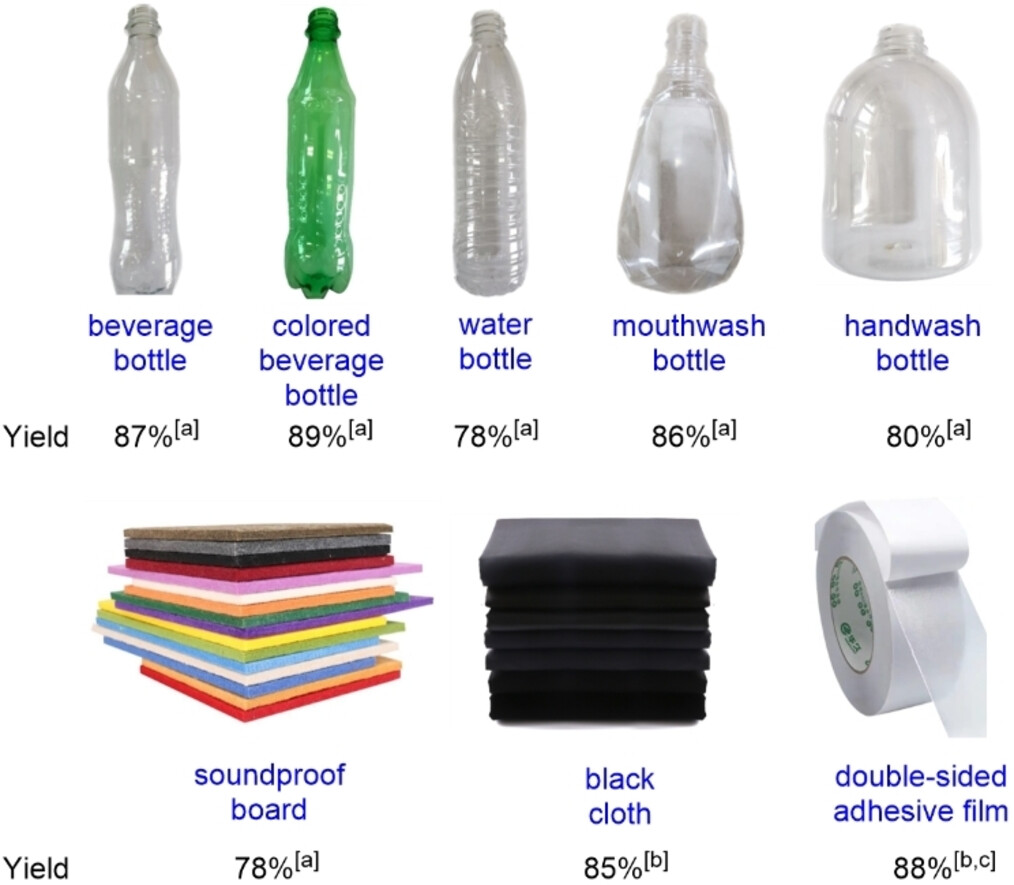The Organic Hydrogen Storage and Catalysis Research Group led by Prof. XIE Yinjun at the Ningbo Institute of Materials Technology and Engineering (NIMTE) of the Chinese Academy of Sciences (CAS), has developed a novel hydrogenation approach for degrading waste plastics efficiently under mild conditions.
The study was published in Angewandte Chemie.
Despite the convenience to human life, plastics have caused serious environmental issues inevitably.
More than 400 million tons of plastic are produced annually worldwide, and most plastics take decades or even centuries to break down in the natural environment due to their stable molecular structures.
However, degrading plastics efficiently and environmental-friendly still remains challenging.
Researchers at NIMTE has proposed a novel transesterification/hydrogenation relay strategy and prepared a new class of quinaldine-based Ru complexes catalysts.
These enable the high-efficiency degradation of a type of common polyester plastic known as polyethylene terephthalate (PET), which is widely used in single-use bottles and clothing.
Compared with traditional routes which require harsh reaction conditions, this novel approach can function under relatively mild conditions (80 oC, 1 bar H2). Thus this approach is more environmentally friendly with higher atom economy and less waste, contributing to the recycling of waste plastics and achieving carbon peaking and carbon neutrality goals.
In addition, this approach can be applied in the depolymerization of other diverse polyesters, such as polybutylene terephthalate (PBT), polycaprolactone (PCL) and polylactic acid (PLA), etc.
Results of a series of controlled experiments indicated that CH3OH plays a crucial role in promoting reaction efficiency.
Moreover, the approach can facilitate the conversion of waste polyesters to the valuable 1,4-cyclohexanedimethanol (CHDM), thus showing broad application prospects.
This work was supported by the 3315 Program of Ningbo (No. 2020A-32-C), Ningbo S&T Innovation 2025 Major Program (No. 2022Z156), and Ningbo Natural Science Foundation (No. 2022J287).

Fig. Recycling of PET plastics (Image by NIMTE)
Contact
XIE Yinjun
Ningbo Institute of Materials Technology and Engineering
Email: xieyinjun@nimte.ac.cn

